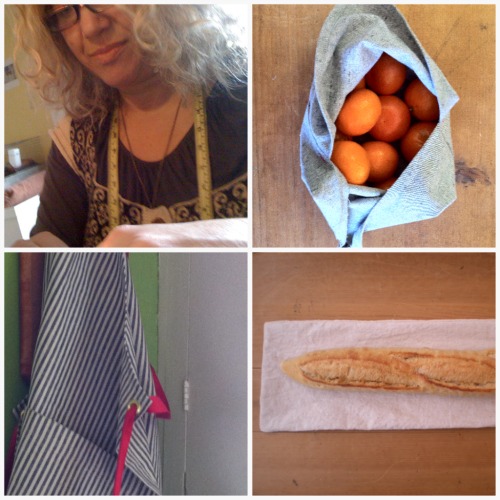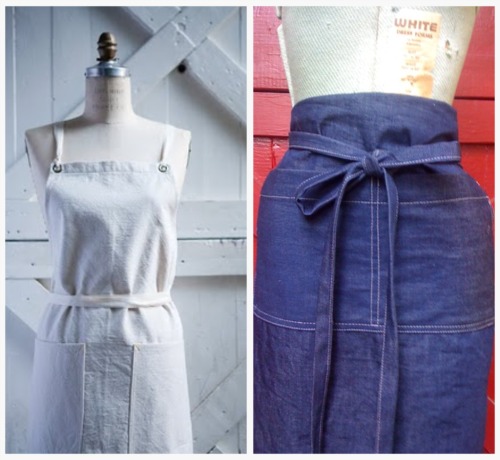
Molly de Vries has a very special Bay Area company, Ambatalia. The name is actually born from a Trinidad song about empowering women and nurturing the earth and Molly couldn't be a better living and breathing representation of the namesake of her company or her mission for the work she does. I first met Molly at the Marin Country Mart Farmers Market. She has a booth right next to my Marge booth and we spend many a Saturday chit-chatting and catching up with each others' lives. But the first time I really began to understand what Molly was aiming to do with Ambatalia was the day she turned down a slice of pie I offered her because it was in a clamshell container. Oh no, I assured her, it's corn-based -- not plastic. That helped. But Molly routinely and deliberately eschews any containers or packaging for a simpler way of carrying and transporting goods -- whether that be a cinnamon roll in the morning or how she brings her goods to the farmers market each morning. She's the real deal. I decided to take some time away from the market to talk to Molly about how she began and what her intentions are for her burgeoning business. I couldn't have been more inspired.
Tell me a little about your business and how/why you decided to start it.
I had closed my downtown Mill Valley fabric shop in 2004 and Tyler Florence approached me to do a kitchen line for his store. I had always created goods in and around the kitchen and the act of shopping but this really pushed me to focus on my passion for useful, sustainable textiles. After being a hairdresser for twenty years, I wanted to do something meaningful and after a year of focusing on what that would look like, when I turned forty, I started to put together clues from my life and Ambatalia was born.
I wanted to do handmade goods with integrity and beauty have a real sense of honor in my work -- the opposite of all the mass-produced plastic stuff floating around. When I walked into Joanne fabrics or other large chains, I'd just see yards and yards of plastic fleece but no wool. This seemed crazy to me. So my goal really became buying fabrics with the most integrity. the closest in distance, and as sustainable as possible.
Your business is decidedly centered around food: the serving of it, the presentation of it, the transportation of it. How did you come around to food?
Well, food and textiles have so much in common, at least in my mind. There's an obvious link in the way in which we honor our food with beautiful cloth on our table and in our kitchen, but more importantly, the people making the cloth have a direct impact on us as individuals and families. The people that are making our clothes across the globe have faces and families. So often these days, we don't take a moment to think about them, we just want a good price. And I walk down the aisles of stores and restaurants and see all of the plastic packaging, especially in the food industry, and puzzle over how so many people don't think about where all of that plastic ends up. So now, as a society, we're finally starting to understand the benefits of buying local, organic food and the importance of knowing our farmers. I believe that it's just as important to buy our textiles in the same way.
Do you think living in the Bay Area allows your business to flourish? If so, how so?
I think so and largely because we’re so cosmopolitan and the whole local food movement is thriving here. People are more receptive to paying a little more to benefit the environment or local producers and artisans. The question always remains though: how do I produce as much as I can using materials that originate as close to home as possible? So it costs more. It does. But there's a trade-off.
